The Nippon Foundation MEGURI2040 Fully Autonomous Ship ProgramAiming to implement fully autonomous navigation to support the ocean of the future
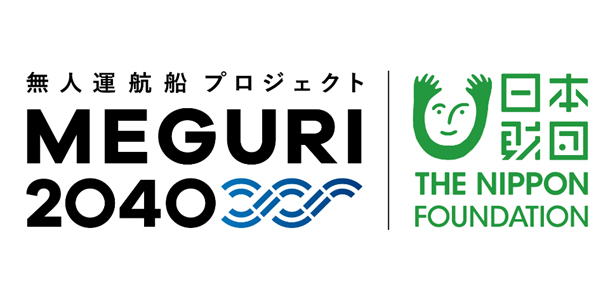
The Nippon Foundation MEGURI2040 Fully Autonomous Ship Program is leading the world in carrying out demonstration testing of fully autonomous navigation for coastal shipping, and through the success of this testing, seeks to create further opportunities for technological development in this field, promote innovation in Japan’s logistics, economy and social platforms, and support related technological development.
Significance of The Nippon Foundation MEGURI2040 Fully Autonomous Ship Program
With Japan today experiencing a contracting, aging population, shortages of human resources are emerging in a wide variety of fields. Coastal shipping, with its challenging work environment, is no exception, and with more than half of coastal shipping crew members over the age of 50, this is becoming a major issue. In addition, Japan has roughly 400 inhabited offshore islands, many of which are visited by ships only twice a day, in the morning and evening. Maintaining these offshore routes has therefore become a critical issue in the daily lives of those inhabitants. In addition, human error is said to be involved in 70-80% of maritime accidents, making accident reduction an issue as well.
We believe that fully autonomous navigation is one way to address these social issues.
These demonstration tests have the following specific objectives, and are also expected to revitalize and enhance the competitiveness of the shipping industry and related industries.
- Advance the technological capabilities of related industries (including through participation from other fields)
- Play a leading role in establishing international standards for fully autonomous navigation
- Create a greater sense of security (social acceptance) toward fully autonomous navigation (including giving children of the future dreams of working in maritime industries)
Meaning of ‘MEGURI2040’
Practical implementation of fully autonomous navigation will improve the flow of goods, people, costs, and traffic, thereby creating greater convenience. The program’s name conveys the concept of “Improving Japan’s circulation,” which is seen as the program’s main benefit, and the name meguri is a Japanese word for “flow.”
Aiming for practical implementation by 2025
Demonstration testing of autonomous driving has been moving forward, primarily in the automotive sector, but sea navigation presents technological challenges in terms of telecommunications infrastructure between land and sea and obstacle avoidance, as well as the economic challenge of high development costs, and as a result there has been almost no development to date in the field of fully autonomous navigation for seagoing vessels. At the same time, Japan is a world leader in terms of advanced technologies in areas including the internet of things (IoT), artificial intelligence (AI), and image analysis. Therefore, joint technological development by multiple private-sector companies that possess these technologies opens up possibilities for dramatic advances in technological development for fully autonomous navigation.
Preparations underway for demonstration tests at each consortium
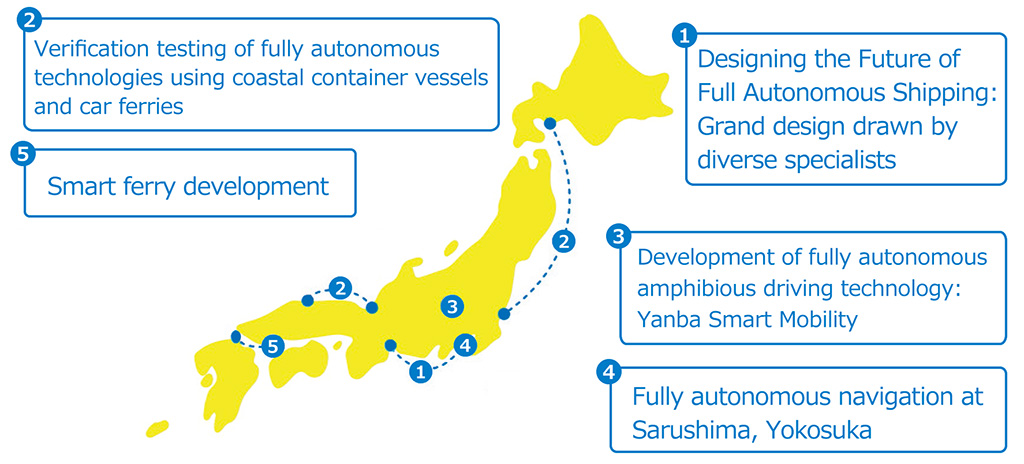
As of November 2021, the five consortia were in the process of developing new equipment, systems, technologies, and frameworks with a view toward conducting demonstration tests by the end of March 2022. Japan is expected to become a world leader in these industries. These tests will be the world’s first demonstrations using large vessels navigating over long distances through congested sea lanes.
1. Designing the Future of Full Autonomous Shipping: Grand design drawn by diverse specialists
Project overview and development status
More than 30 Japanese companies are working together to develop a fully autonomous navigation system for container ships. The consortium is taking an open-innovation approach with the aim of practical implementation. A land-based Fleet Operation Center is also being built in Makuhari, Chiba Prefecture, for remote operations in emergency situations.

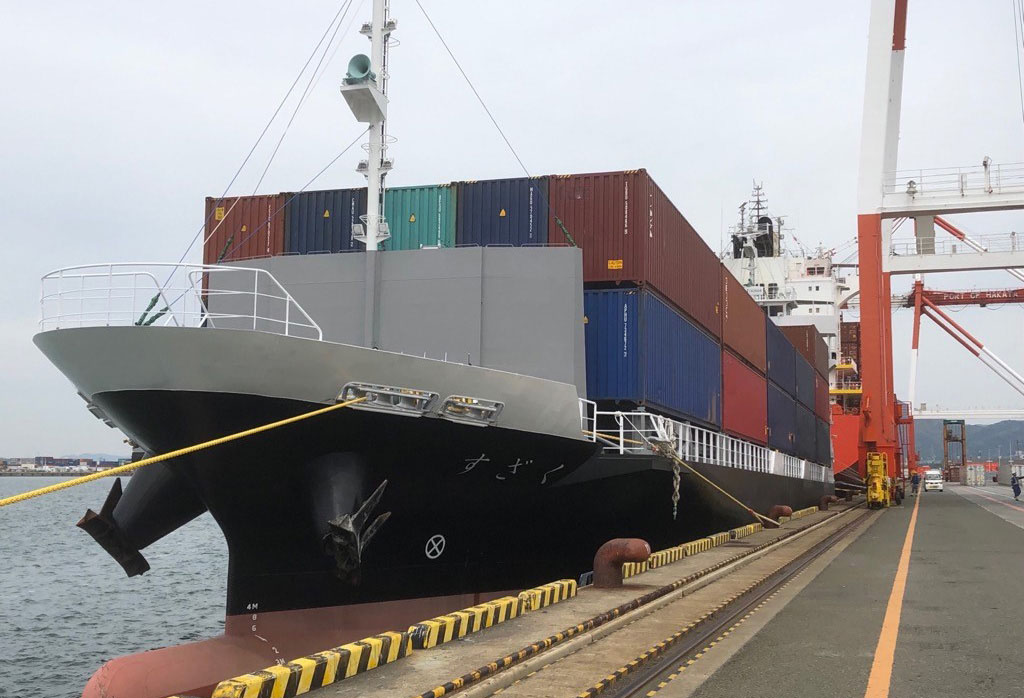
| Consortium members (as of January 2022) | ||
|---|---|---|
| 1. Japan Marine Science Inc. (leader) 2. Bemac Corporation 3. Eizo Corporation 4. Furuno Electric Co., Ltd. 5. Honda Heavy Industries Co., Ltd. 6. Ikous Corporation 7. Japan Hamworthy, Co. Ltd. 8. Japan Marine United Corporation 9. Japan Radio Co., Ltd. 10. Kinkai Yusen Kaisha Ltd. |
11. Mitsubishi Research Institute, Inc. 12. Mitsui Sumitomo Insurance Company, Ltd. 13. Miura Co., Ltd. 14. MTI Ltd. 15. Nabtesco Corporation 16. Nihon Shipyard Co., Ltd. 17. Nippon Telegraph and Telephone Corporation 18. Nippon Yusen Kabushiki Kaisha 19. NTT Communications Corporation 20. NTT Docomo, Inc. |
21. NX Shipping Co., Ltd. 22. Pluszero Co., Ltd. 23. Sanwa Dock Co., Ltd. 24. Sky Perfect JSAT Corporation 25. Sunflame Co., Ltd. 26. Suzuyo Marine Co., Ltd. 27. Tokio Marine & Nichido Fire Insurance Co., Ltd. 28. Tokyo Keiki Inc. 29. Weathernews Inc. 30. YDK Technologies Co., Ltd. |
2. Verification testing of fully autonomous technologies using coastal container vessels and car ferries
Project overview and development status
The consortium is developing fully autonomous navigation systems for container ships and ferries. For ferries, this will include an automated navigation function for within the harbor, including automated berthing and unberthing, and mooring support using drones is being developed for container ships.
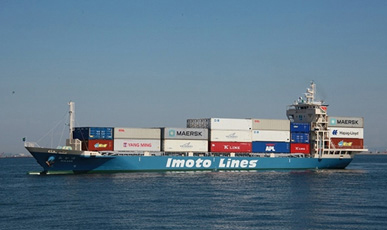
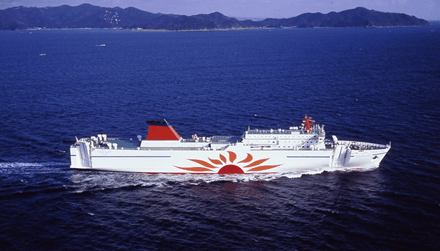
| Consortium members (as of November 2021) |
|---|
| 1. Mitsui O.S.K. Lines, Ltd. (leader) 2. A.L.I. Technologies Inc. 3. Furuno Electric Co., Ltd. 4. Imoto Corporation 5. Imoto Lines, Ltd. 6. Mitsui E&S Shipbuilding Co., Ltd. 7. MOL Ferry Co., Ltd. 8. MOL Marine & Engineering Co., Ltd. |
3. Development of fully autonomous amphibious driving technology: Yanba Smart Mobility
Project overview and development status
A fully autonomous navigation system is being developed for an amphibious vessel at Yanba Dam in Gunma Prefecture. Building on autonomous driving for an automobile, this will enable fully autonomous navigation on water. Local 5G infrastructure is being used for telecommunications to develop a land-based monitoring and operation system as well.
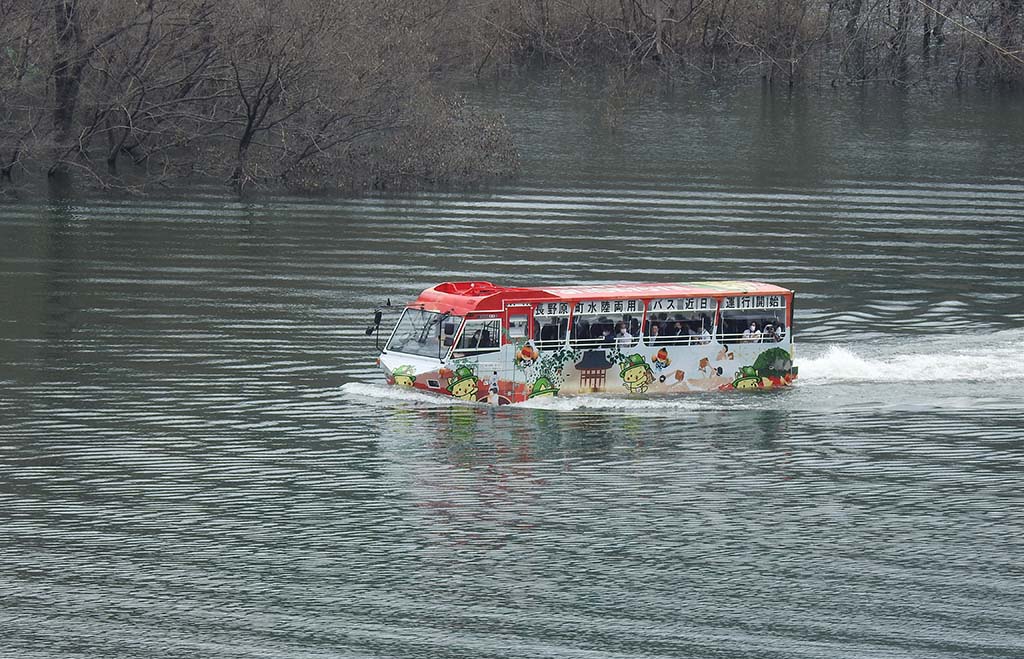
| Consortium members (as of November 2021) |
|---|
| 1. ITbook Holdings Co., Ltd. (leader) 2. ABIT Corporation 3. Japan Amphibious Vehicle Association 4. Naganohara Town (Gunma Prefecture) 5. Saitama Institute of Technology |
4. Fully autonomous navigation at Sarushima, Yokosuka
Project overview and development status
A system is being developed for fully autonomous navigation of a small tourism boat navigating between a pier in Yokosuka and Sarushima island. This includes the development of a system using three cameras to detect other vessels and avoid them automatically.
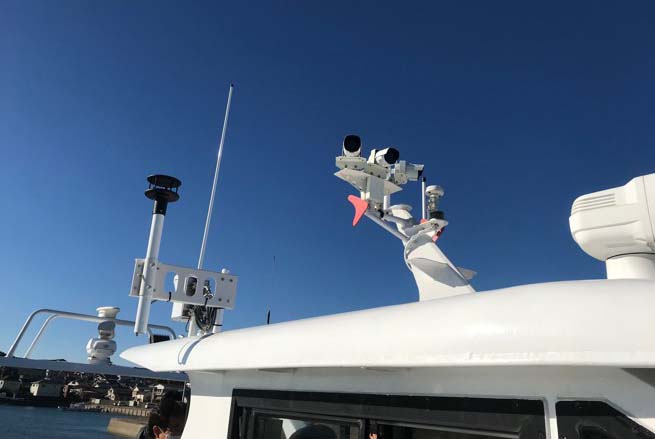
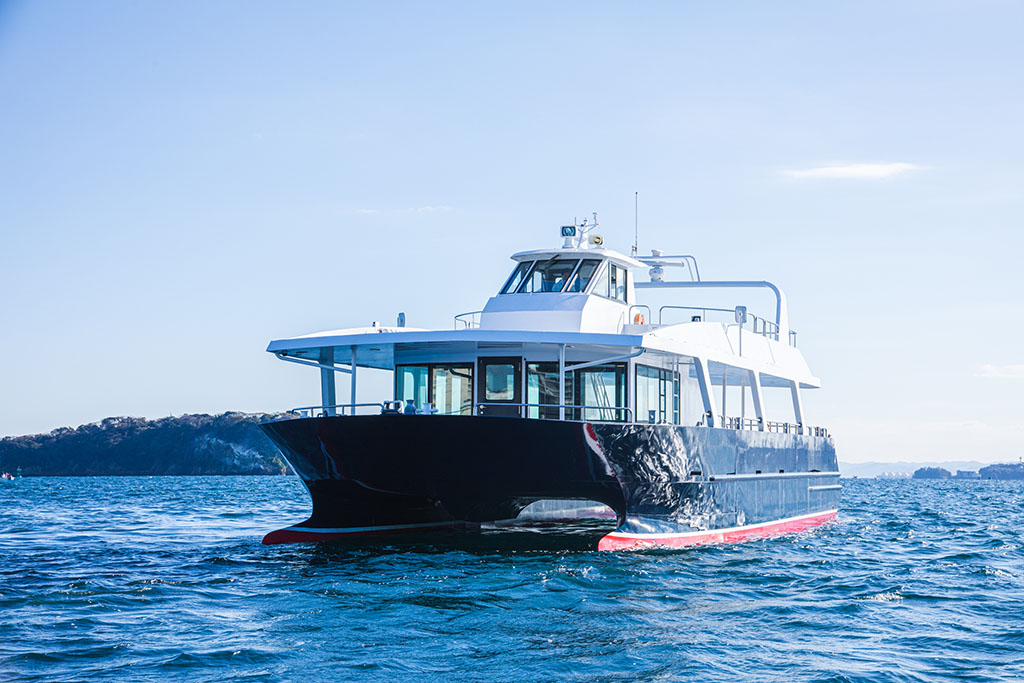
| Consortium members (as of November 2021) |
|---|
| 1. Marubeni Corporation (leader) 2. Mitsui E&S Shipbuilding Co., Ltd. 3. Tryangle Inc. 4. Yokosuka City (Kanagawa Prefecture) |
5. Smart ferry development
Project overview and development status
Development is being carried out for a new ship being built and equipped with a fully autonomous navigation system that will operate as a ferry between Shinmoji, Kitakyushu City, and Yokosuka. The ferry will begin operating with a manned crew from July 1 to collect data for fully autonomous navigation.
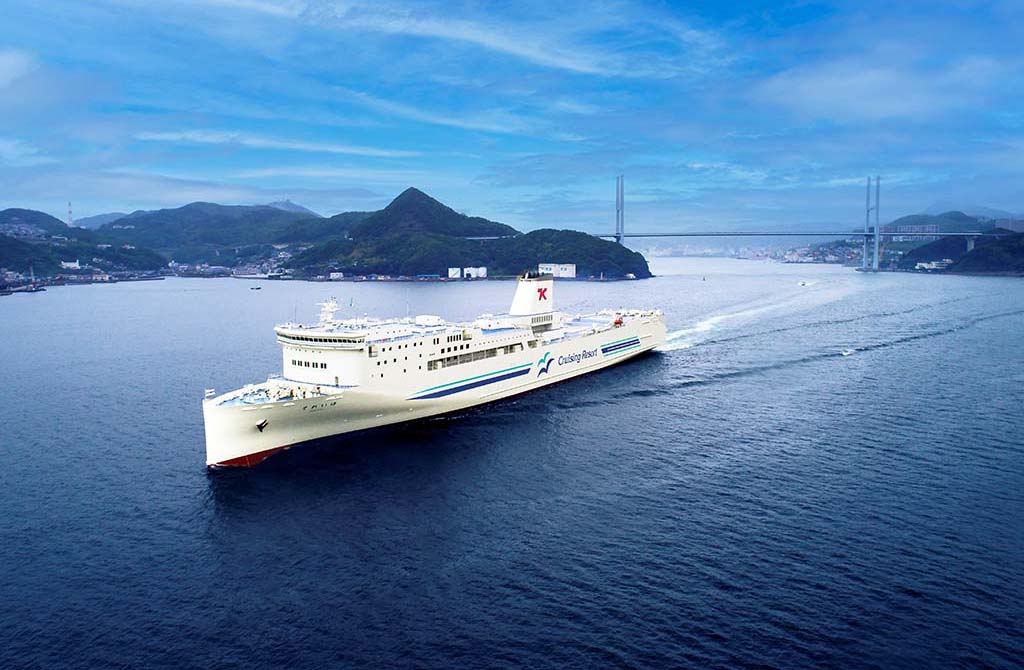
| Consortium members (as of November 2021) |
|---|
| 1. Mitsubishi Shipbuilding Co., Ltd. (leader) 2. Shin Nihonkai Ferry Co., Ltd. |
Contact
Public Relations Team
The Nippon Foundation
- Email: cc@ps.nippon-foundation.or.jp



